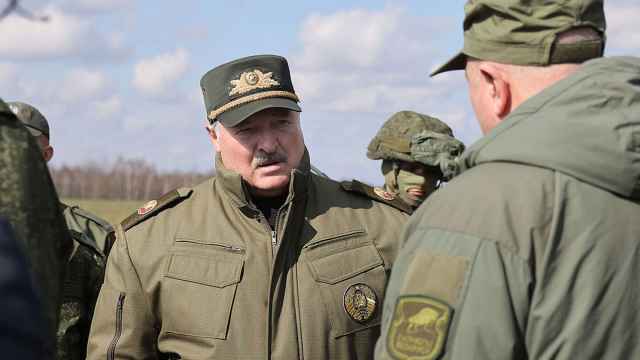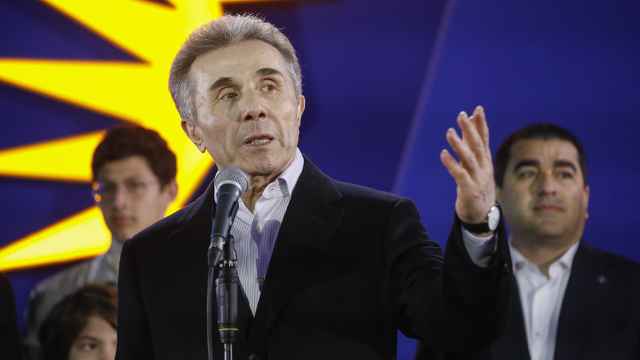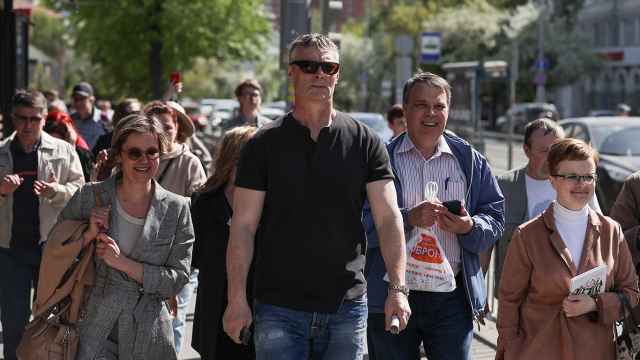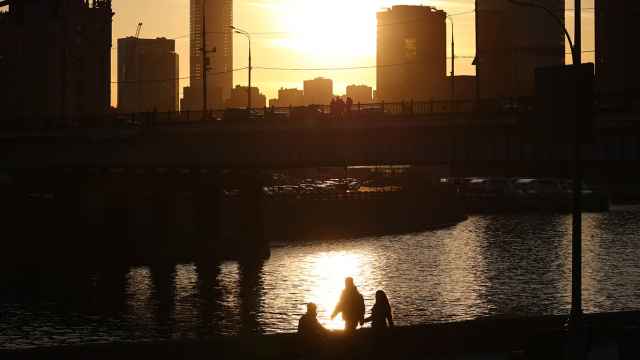British actor and celebrity Stephen Fry sat down on Thursday for an interview with Vitaly Milonov, the author of St. Petersburg's controversial gay propaganda law.
Fry, who is openly gay and was shooting a documentary in St. Petersburg about homosexuality, said afterward that he found little in common with Milonov, a local lawmaker for United Russia.
"Milonov doesn't seem to believe there are teenagers bullied and tormented for being gay, he thinks they make it up & indoctrinate to minors," he wrote on Twitter.
Fry is one of the world's most popular Twitter users and currently has more than 5.5 million followers.
He added that Milonov regards liberals as the destroyers of Europe: "Look at Britain, destroyed by liberalism," he quoted him as saying.
"Well, I shall always love Russia and hope that its youth will not allow the toxic mix of nationalism and religious zealotry to destroy her," Fry wrote, adding that Russian politics "are none of my business, but I've been making a 2-part [documentary] called Out There about being gay globally."
At an improvised press conference in the city assembly, Fry then appeared to compare President Vladimir Putin to a goblin-like creature from the Harry Potter movies.
"Hope I haven't created an international incident by looking at pic of Putin & observing to the press that he looks like Dobby the House Elf," Fry tweeted.
"Maybe I'll be poisoned by one [of] his agents. If so I want no revenge taken I just want him laughed out of office," he added, linking to a photo montage of the Elf and Putin.
Milonov, meanwhile, told reporters that he found Fry to be interesting and talented but that he was skeptical about his documentary. He promised to pray "for Fry and his family every day," the local Fontanka.ru news site reported.
Fry arrived in St. Petersburg on Wednesday and is due to leave the country Thursday evening, the report said.
A Message from The Moscow Times:
Dear readers,
We are facing unprecedented challenges. Russia's Prosecutor General's Office has designated The Moscow Times as an "undesirable" organization, criminalizing our work and putting our staff at risk of prosecution. This follows our earlier unjust labeling as a "foreign agent."
These actions are direct attempts to silence independent journalism in Russia. The authorities claim our work "discredits the decisions of the Russian leadership." We see things differently: we strive to provide accurate, unbiased reporting on Russia.
We, the journalists of The Moscow Times, refuse to be silenced. But to continue our work, we need your help.
Your support, no matter how small, makes a world of difference. If you can, please support us monthly starting from just $2. It's quick to set up, and every contribution makes a significant impact.
By supporting The Moscow Times, you're defending open, independent journalism in the face of repression. Thank you for standing with us.
Remind me later.







